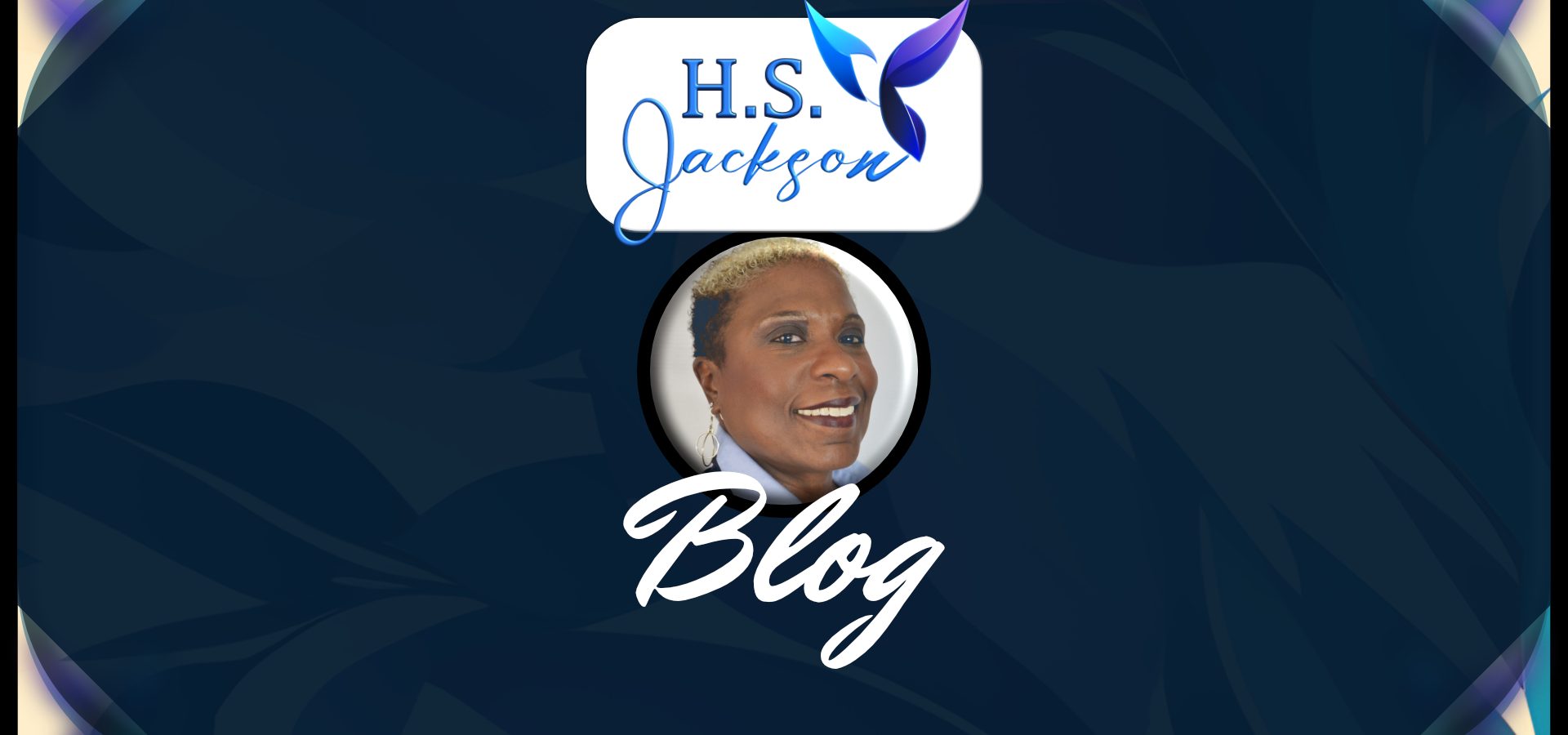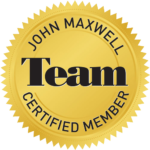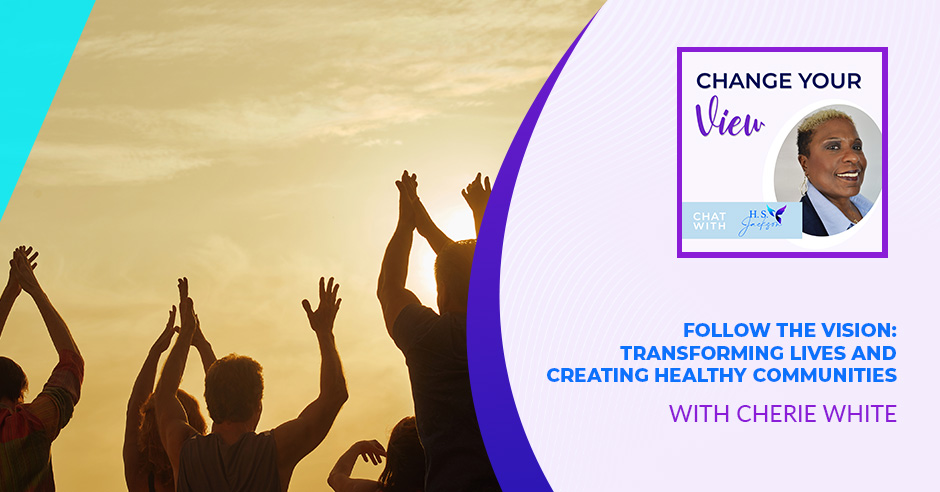
Visionaries, when their ideas are given life, change the world. Today’s guest is one who took her vision and purpose to change the lives of those in her community. Social Impact Developer and CEO of Steadfast Developments Cherie White joins Haseena Shaheed-Jackson to tell her inspiring story. She shares with us her journey of founding an all-inclusive female development company that aims to address the root cause of societal problems such as the housing crisis: poverty. Championing the community-first model, Cherie describes the impact of communities in transforming neighbors from poverty to abundance. She then talks about how she is keeping that commitment and resilience to continue moving forward with her project. Tune in to this episode and learn more about how Cherie’s passion is transforming lives and creating lasting impact.
—
Watch the episode here
Listen to the podcast here
Follow The Vision: Transforming Lives And Creating Healthy Communities With Cherie White
Hello, Cherie. Thank you so much for being with me here. I know that our conversation is going to be enlightening. I’m so excited to have you be a part of my show.
I’m so excited to share my story and be a part of your show. Thanks for having me and considering me to be on your show.
I’m going to jump right in. I met you about four months ago and you left me in awe. We had such a great connection that I said, “I must interview Cherie for my show,” because you have a why and a purpose that is inspiring. I would like people to know what that purpose and why is. Please explain it.
I have a holistic all-inclusive female development company. A lot of that is very unique. Development companies are a dime a dozen. We don’t just build homes. We build affordable homes for women and families. We are particularly looking at not just the housing crisis, but we’re looking at what is causing the housing crisis. We’re looking at the root cause. Many people think that we have a housing crisis, but I don’t think that we do. We have a poverty crisis. When we look at the actual root of the problem and address the problem, then things like homelessness start to go away. Things like lack of jobs and lack of sustainability in the community start to go by the wayside when we actually address poverty.
I’m passionate about creating teams. I have three teams. In short, it’s family, a home, and a job. That’s our philosophy. We believe that when we all have those three things, like a three-legged stool, we have success in our lives. These are the fundamentals that we need in order to get through our day. If one of those three pieces, like a three-legged stool, is pulled out from under us, the whole thing topples over. We need all three things. We have created three teams. We have a family team, which we call our Intentional Community Development Team. We have a housing team, which is the Development Team. We have a job team, which is our Economic Sustainability Team. We have all these three teams that when they’re working together, we will make a massive change in the neighborhood that I live in.
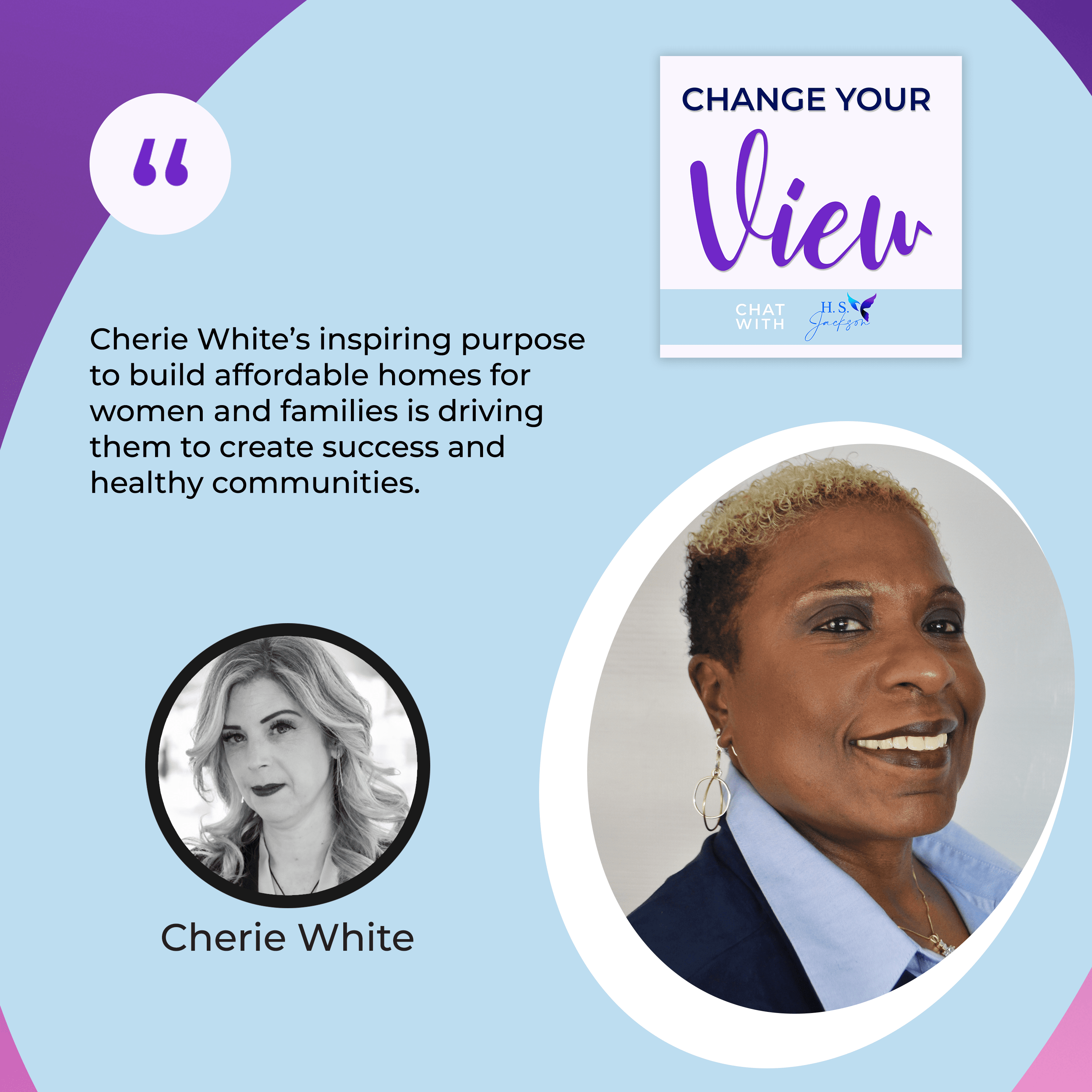
I live in Canada’s poorest neighborhood. We have all the things that come along with that, which are drugs, prostitution, and violence. It’s all those things that you would never think Vancouver would have. There’s a small little neighborhood called the Downtown Eastside and it has all those things. I’m passionate because my why is that I love my new neighbors. I love the women that live beside me. I’ve made some excellent friends in my neighborhood and I see an injustice. I don’t think that it’s fair that they don’t get the same things that I do, not because of where they were born into. My passion is to make things at least an equal playing field and to see this neighborhood change.
This is the neighborhood where I had my family. I have five kids and an amazing husband that I chose. I was educated. I wasn’t wealthy by any means, but I had that gift of choice. I could go anywhere I wanted to in the world, and I chose here because I am passionate about justice. I want to see others, particularly women, have the same rights and privileges that I was born into.
My why is for my kids. I want them to see what it means. I don’t want them just to hear stories at the table, although we do that as well. I want to show them what I think it means to love thy neighbor. My husband and I, in our early 20’s, decided to move into Canada’s poorest postal code against our parents’ wishes. We joined a community. There was a community that was already here with the Salvation Army. We were invited to come and be a part of this community called 614 in the Downtown Eastside, and it was life-changing. It’s a place where I had children. I birthed children in the neighborhood.
You have said so many things though, Cherie.
I’m sorry.
I understand. but you have dropped so many nuggets that I’m going to have to unpack that. We’re going to take this a little piece at a time here. One, I have to ask you and you alluded to it. What made you understand that this was the path for you? What caused you to see that this was the direction that you should take?
I was born into a Salvation Army home. I had a grandfather that I was so privileged to have such a positive male influence in my life right from birth. We know the effects now from the studies psychologically what 0-5 has on you from other people as a child. I happened to have a very strong grandfather that was about protecting his granddaughters. We lived together. We lived in the same house. He would sing gospel songs over me at night. Even though as a little girl, I didn’t fully understand what he did. What he did was he went and he visited men in prison and gave them hope. That’s what he did.
I have a background. I feel I have a spiritual inheritance. Why did I choose this? Because I think it was some sort of inheritance that I feel that I was given. I was modeled into something that wasn’t the norm. It’s in my head, and I realized my head is not normal. It didn’t make sense to me not to use it. I don’t know how else to say it. It didn’t make sense for me just to live a happy little life with my husband, children, and family. That seemed too small in my brain. It made sense that, of course, “Why wouldn’t I use the power and privilege that I have for others?”
I like the way you said it. You said it powerfully, “Why wouldn’t I do it? Instead of saying, “Why I can’t?” You said instead, “Why wouldn’t I do it?” Another thing that you touched upon there is poverty. I was having this discussion with someone else the other day. I agree with what she was saying. Poverty is subjective.
I have a friend. She was raising her two kids by herself. Her kids did not understand what poverty meant. She had to make sure that she stuck to her budget for what they could buy. Poverty to her means having sufficient money to buy food. The thing is that people in their community might not see themselves as being in poverty. How do you make that connection with them so that they understand that not necessarily they’re in poverty, but they can do better? That’s the way we have to look at it. You can do better and be better. How are you getting that across to them?
I completely agree that poverty is a mindset and there is definitely subjectiveness. The word poverty holds a negative energy to it, for sure. It’s like any other relationship. That’s what we were taught when we became part of the community in the Downtown Eastside. It was, “Do you have time to sit with somebody and say, ‘I care about you.’”
We’ve got these stairs that are outside my house. People often smoke crack on them. That’s a normal thing. Unfortunately, sometimes they overdose on them. The idea of coming and sitting on the stairs beside someone without judgment while they’re smoking crack and asking them about their day, first of all, they’re very skeptical like, “What are you doing here? Are you a cop? Are you going to put me away?” They want to know that. They then think I might be a nurse. I’m like, “No, I’m not a nurse.” They then figure it out. Over time, they get to see your heart.
How different is that from any other relationship at work, at a community center, or wherever else you might be going? It’s the same principle, “I’m going to sit down. I’m going to get to know you. I’m going to build a relationship.” Once that relationship is built, then questions start to come because there’s safety and trust like, “It’s okay to open up to you because you’re not going to go and rat on me.” That’s a legitimate concern. It’s like, “No, I’m not going to rat on you. I don’t have time to rat on you.” It’s safe to ask a question, “Why is it that you don’t smoke crack and I do? Can I ask you another question? What can I do? Are you able to help me? Can you help me find it? I’ve decided today.”
This is a long-time thing. This isn’t usually within the hours. Over time in the relationship, as trust is built, then people have asked me, women particularly, “Do you know of a place? I don’t want to live this lifestyle anymore. Is there somewhere I can go where you would walk with me and hold my hand through a treatment center? Is there somewhere you can recommend me?” I never push. I always invite. That’s when the change starts to happen. It’s through relationships and the power of patience, friendship, and trust. That’s how everybody starts to change.
It's through relationships and the power of patience, friendship, and trust that everybody starts to change. Share on XYou raised an interesting point there. We think that it’s immediately jumping in and trying to make someone do something. However, you exhibited character and show that you care, and looked at the small details. That made them trust you. You establish that credibility when that woman said to you finally, “She does care about me. Maybe I could ask her for help.”
That’s what we used to understand because it’s about relationships. It’s not about trying to tell someone what to do. It’s about building that connection and establishing, “We have a connection,” so that person wants to change and make a difference. That’s how we help people to see differently. It’s about sitting beside them, listening, and showing that you care.
Another thing that comes to mind though is you say you have five kids and you’re living in a community where someone could sit on your porch and smoke crack. How do you feel that impacts your children? How are you showing your children that this is more of an education versus something that you want them to take up and do themselves?
For sure. There is nothing more impactful than there are no lives when you live in this neighborhood. If you open your door and you see someone strung out on crack, my kids see that and go, “That doesn’t look attractive.” Often in Hollywood or something, it may look glamorous or there are other ways that maybe alcohol and drugs look like a glamorous way of living or an escape or whatever, but they see the hard truth.
Whenever we go in and out our doors, they see mom and dad and the others that live in the house helping those. There’s a clear understanding right from infancy that mom and dad are here to help them because something is not right. The idea of them wanting to do the thing that’s making people not right, they’re just like, “No, thank you.”
In fact, I have one kid that wants to become an ambulance driver and go because he feels called to help people. On his way home from school, he carries a NARCAN kit, which is a kit that if someone has overdosed, you can shove it in them and they can come back to life sort of thing. That is actually done the opposite like perhaps what you’re suggesting. I’ve got kids that are like, “I want to help. I want to make a difference. That is killing people’s dreams.” That’s really clear and they don’t want anything to do with that.
Funny enough, my husband is concerned about the mall. The reason he is concerned about the mall is because it’s very subtle. When the girls go into the store, it’s like, “Hi, can I help you?” It’s very subtle. He thinks the Downtown Eastside and outside our door, there’s no subtlety. It’s smacked in your face. He would often pray over my girls before they went to the mall because it was way more subtle.
We have had lots more conversations about the effects of capitalism, body image, and all the things. He thinks that the mall is way more dangerous than our neighborhood. That’s how we’ve taught our kids. The modeling is so important that they don’t want anything to do with the drugs now. That’s what’s going on.
It’s the perception. He sees the outside immediately as not being so much the threat, but the mall is the threat. That’s very interesting. It’s based on a perspective and how you perceive things. Let me ask you this. Sometimes people are not open to help and change. What obstacles have you encountered undertaking this path?
When I was working full-time for the Salvation Army before I became a social justice land development, it wasn’t like business. There wasn’t a quota that we had to meet to help people out of drugs or anything. It was just creating a community. I didn’t see any obstacles as such. Maybe it would be my own like, “Could you hurry up and get out of this lifestyle so we could get onto some more exciting things?” That might be an internal thing. Other than that, there weren’t obstacles with the team that I worked with,
One of the obstacles I found for the women, not necessarily for me, was finding housing, which is the reason why I became a developer in the first place. Women would ask me to come once they’ve left a drug and alcoholic lifestyle and they have a job and they got sustainability. They’d be starting to look for homes. Vancouver is in a housing crisis. I say that we’re not, but there are not enough homes. That’s just the thing. There are especially not enough homes for the poor. There are lots of homes for the wealthy, but there are no homes for the poor.
There are lots of homes for the wealthy, but none for the poor. Share on XI would go with the woman. They would rent the basement suite or something. The moment that they opened their mouth to say that they were in recovery or something of that language, all of a sudden, we would notice that the landlord that was showing us through the suite would be like, “I just got a call this morning. Actually, this suite is taken. Sorry about that. I don’t even know why I invited you over.” All of a sudden, it was weird. It was the injustice, where they would look at me and I’d go, “This is all wrong.”
What would happen is the landlord would choose the nice family over the woman that has been trying to change her life for the past year or whatever. That was a challenge for the women to find decent housing with addictive backgrounds. For me personally, I didn’t find challenges when I was working with the Salvation Army. I trusted that women would come along. I trusted God that the right woman would come into my life at the right time. I would help them and be available for help. That was my job. There was no push. I didn’t see an obstacle. There was basically making a friend, just like you and I become friends.
It’s amazing that society still continues to push people down. It’s like what you were saying about the housing issue there. Instead of being welcoming and saying, “I see you’re trying to turn yourself around,” and embracing them, they’re trying to push them back to their old habits and old ways of thinking. That could be a deterrent to someone trying to get better. You’re showing me there’s no reason for me to get better because you don’t want me to get better. You want me to go back to where I came from, continue doing the drugs, being on the streets, and doing things that I shouldn’t be doing.
That’s why the community model is so important. The government thinks the housing first model is what works and there is some data to support that it does. Once you have a house, then you get everything sorted. That’s not what works. What works is a community-first model so that woman has a friend, a neighbor, or someone to get all those thoughts out of her head. You have someone that you can trust to say, “It is worth getting up tomorrow, trying again, and finding another house. Don’t let those negative thoughts take over.”
The community that you surround yourself with is so important. That’s why it’s one of the three things that has been proven to change neighborhoods of poverty to neighborhoods of abundance. I don’t mean through a gentrification model either. I am not about pushing out the poor so that my bank account can get bigger. I am about an inclusive model and a right to first refusal model.
Those that are already here, they’re the ones that will have the opportunity through a rent-to-own program to own their own place that others won’t. It’s a community-first model. You have to have that peace, that community, or that friend that will take the time to get those thoughts that can go, “Why even bother? It’s so much easier if I just go back out.” When you’ve got a community surrounding you saying, “That’s a lie. This is the truth. Let’s do it together,” there’s all sorts of hope. That’s the equation for hope, for sure.
I’ll segue. That is the program that I am pushing. It’s called Ava’s Pathways. Ava’s Pathways is to deal with building relationships and community, and helping people to see their strengths so they can have positive outcomes. It’s about that relationship. How can we partner together to have positive outcomes? It’s about partnership because we’re relational beasts. There was no intention for us to be self-sufficient. We are supposed to be co-mingling and relating. That helps us to grow and to become better.
That’s what I will also be doing through Ava’s Pathways, which we’ll talk more about later offline. I just wanted to say that that is so true. It’s about relationships. Let me ask you this, and we touched on it already, but what partnerships and relationships have you formed to help make those programs a success?
One of my favorite things to do as a visionary is to create positive teams. I love creating teams. What I’ve discovered is one of my superpowers is creating teams. I don’t even mean to do it. I’ve learned a lot about creating a strong team because it does take a village in order to raise a child. I strongly believe that. It feels like there are a thousand nonprofits already working their butts off in my neighborhood. I have spoken to a lot of nonprofits and said, “I know that you are so busy trying to address one of the three problems like housing, jobs, and community that you don’t have time to collaborate. You’re trying to get the funds in. You’re trying to create your own team.”
One of the things Steadfast does in the Intentional Community Development Team is that we are creating an umbrella for all of the nonprofits that are already here working. We are creating a team. One representative of each one comes together to create a neighborhood team. That’s on the community side. I’ve created a team, and it is over time for sure, that is backing me personally around capital raising. I’ve created an all-female development team. There are ten different strategic multifamily developments that we’re doing for housing. That will increase affordable housing by 2,000 units in our five-block radius, which is huge.
I have created eight different experienced developers. The developers take one project each, and then they partner with me around the vision of what that would look like. They bring their own team and their own experience to each one of those projects. We have this cracker jack female job team led by this one woman that loves startups.
We’ve created a sustainable model for new job creation in the neighborhood so that a woman that has a kid can live in one of our houses. They can drop off their kid at the daycare that’s in the multifamily development, and then they can go to work and walk to work within the neighborhood, and then come back.
Because of the model of the multifamily development where you only have to cook, it’s shared cooking. We have community kitchens. A mom will take one night out of the entire week in order to cook so she can spend more time with her kids and make a stronger community. That is how we are creating teams and communities. We’re creating a strong sustainable community. I love creating teams. As you could see, there are 100 people behind me. Thank God, it’s not just the Cherie Show. If it’s only me, I’d be in a lot of trouble.
You’ve raised another interesting point. We become so overwhelmed with the humongous project that we think that we have to do it all. It’s about surrounding yourself with key players and a personal board of directors that support you in this program. It’s putting people together. If everybody takes a component, then the whole piece can happen.
We have to think about that. That’s how we look outside the box. When you want to open up a business, maybe it’s not just you by yourself, think about who maybe can possibly join you in that venture, which is what you did. “Who can join me in addressing this program that I want to create?” There are others who want to join you in that same vision.
Finance is not my superpower. I’ve hired two investment bankers to oversee the funds for the project. I let them do their thing. It’s so inspiring to listen to them about their excitement around finances. I don’t get that same life in talking about money. I just don’t. They’re experienced. They know what they’re doing and I know that they have a good heart to see my company be sustainable. You definitely need to know what your superpower is, find out what your superpower isn’t, and then go find those people that you love to work with.
You definitely need to know what your superpower is and isn't, and then go find those people that you love to work with. Share on XWhen did you first start this project?
I’ve been in real estate for six years. My first 2 or 3 were in residential because I knew nothing. I had no business background and no business experience. I knew nothing. I just jumped in. I did that for 2 or 3 years. That business then blew up badly. I was alone. I went into depression. Didn’t know what the heck had just happened because I was doing well. It was like a Ferrari on fire that hits a wall and everything blew up.
My team left me. I was alone. No one to help me. No one to guide me. I was like, “Shoot.” It didn’t go well for about six months, and then I had an a-ha moment. I was like, “What is it that you want to do?” Most people don’t go into commercial real estate from the place that I was in. My question was, “What do you want to do?” What I wanted to do was create healthy communities. That’s what I wanted to do. I started from that.
That’s another interesting point because we think that resilience is bouncing back, but resilience is bouncing forward. You took that big blow-up to move you forward to where you are now. That’s what people need to think about. Resilience doesn’t mean you go back to the way things were. Resilience means that you go forward into the path in whatever direction. You’re springing forward, not springing back. That’s what we need to keep our eyes on. I commend you for that.
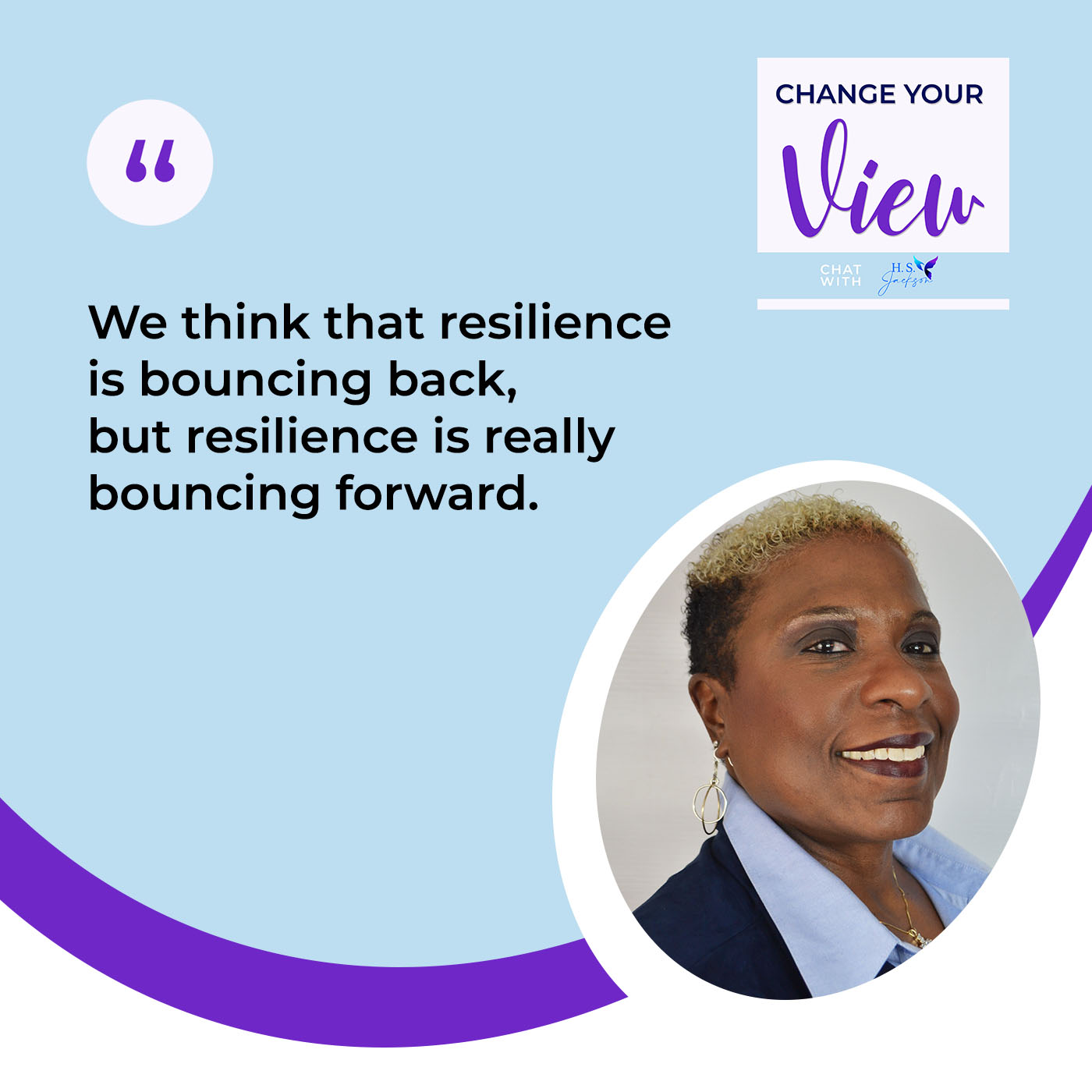
You have that hiccup. You bounce forward to being where you are now. How do you remain committed and accountable to what you’re doing? How do you keep that commitment? I’m sure there had been some peaks and valleys where you’ve hit some roads. What did you do? How did you bounce and keep going forward to keep going with this project?
It’s team for sure. It’s finding those people that believe in you and believe in the vision that you’ve set out and believe in the model to complete that vision. I have some very strategic people on those bad days. There’s this woman that I have to give a shout-out to because I love her. She’s my hero. Her name is Majora Carter. She’s from the Bronx. She’s an African-American woman in this kind of development, social justice land development. Each plays together. Her niche gets smaller and smaller. She’s been successful despite the challenges that she’s had. That’s why she’s my hero. She said in her book, “Be prepared and have thick skin. People are going to come after you.” The people that you thought you could trust are going to come after you, so be prepared.
Like clockwork, it was crazy. I’ve had a small group of people come after me like, “Cherie, stop this. You got to stop.” It’s on those difficult days that I have my team, that I have the support, and that I can call at any time, day, or night and say, “You know what? This just happened.” I have had investors that have promised upon promise, contract upon contract, that they would come through on the date that they said they would come through, and they don’t.
What that does for my reputation and my confidence, I’ve been in tears in my kids’ arms. It’s been really hard. In those disappointments and those days, I have people like Ron, Cindy, and Andrew who are on my board and meet with me weekly. It’s almost like a preventative model to keep my confidence up and say, “Cherie, we believe in you. This is a distraction. Stay focused.” It’s those people with those comments that feed into my resiliency that I believe is a gift as well. You got to have your peeps. Otherwise, forget it. You’re not going to make it.
To me, it sounds like the basis is about community. It’s allowing the setbacks, being vulnerable, and not minding. You’re sharing how you’re feeling with others so that they can be those strong supports for you so that you keep going forward in building this project. You said something and this makes me pause. You said the word visionary. A lot of times we hear that, but what does that mean to you? What does visionary mean?
This may be a bit woo-woo, but I believe I’ve been created to see things before they’re completed. When I walk around my neighborhood, I don’t see what’s in front of me. I see the final product. I see the multifamily development completed. I see children laughing, jumping, skipping, and playing in the park where right now it’s mostly single men that are in the park. I see a safe neighborhood. I’m able to see in my head the actual end product. That’s what it means to me as a visionary. I was talking to a friend on my team the other day. I’m like, “I got an idea and it includes you.” He’s like, “Oh, no.”
In general, the world does not honor visionaries. I know for the longest time in my life, it is part of who I am. I’m an artist. I already was an artist, but I have an Arts Degree. I can draw and paint. I can see what the final product looks like on paper before I draw it. I don’t think visionaries have been very honored in this world. I remember the very first time I won an award in real estate. I was fixing and flipping homes, and I was creating and designing the inside of a home. I’d used the money from the fix and flips in order to purchase homes for women that were not able to find housing. The point is I won an award. I was doing well.
I remember a call from a friend. I said, “I feel like such a fraud. I haven’t done anything. This isn’t my award. This is the guys that showed up, the electrician, the construction, and everybody else that did the work. I didn’t do any work. I just told people what to do.” He completely changed my mind, if you want to talk about changing minds. He was like, “Cherie, without you having that vision, you wouldn’t be getting this award. The electrician wouldn’t show up. The plumber wouldn’t show up. The new carpet wouldn’t be there if you didn’t envision that first.”
That was the very first time I started to realize how important visionaries were. I started to change my own view of how I saw myself. It’s because of this guy who said, “Cherie, that is your award. The team will be there on award night. Don’t worry. We’re going to come and take our glory, but we wouldn’t be here if it weren’t for you.” That was mind-blowing for me. It was from that moment forward that I started to value the visions that I had in my head. I thought they were just silly dreams. I didn’t realize that when employed and spoken out, they actually are given life. It’s what changes the world. I do research on other visionaries and what they have done. I was like, “This is okay.”

You have given so much value here. The whole thing about being resilient, moving forward, believing in what you want to accomplish, and surrounding yourself with key players like your board of directors that help and inspire you to keep moving forward. The other thing is relationships. As you said before, the women in your community, it’s about relationships. You’re not telling them that they’re in poverty or there’s something wrong with them.
You’re just sitting beside them, showing that you care and showing them your heart. In turn, they are seeking to become better because they see that you care. That’s how we help change each other. That’s how we lift each other up. One of the quotes that I love says, “Do not go where there’s a trail. Instead, go where there’s no trail and leave a path behind you for someone else to follow.” That’s what we need to do and that’s what you’re doing. I commend you so much because a beginning means that there has to be an end. You’re creating new beginnings as you go forward.
Thank you for your time. Is there any final thought that you want to leave on understanding that believe in that vision? You’ve said it more than enough, “I believe,” but if you have one more thing you want to say, go ahead and say it. I appreciate so much what you’ve relayed here.
Speaking of quotes, one of my favorite quotes is that we need to stop pulling people out of the river, but we need to go upstream and figure out why they’re jumping in, in the first place. This is a preventative model because if we keep pulling people out of the river or if we keep pulling people out of tents that live on the streets in my neighborhood, ten more people are going to move into those tents. We’re just perpetuating the cycle of poverty.
What we need to do is go upstream and figure out why they’re jumping in the first place. Over time, our neighborhood will change. That’s super important. It’s a preventative model that we’re working with. It’s through love, passion, resilience, and team that we’re excited to see the Downtown Eastside change and ultimately, the world. Thanks so much.
Through love, passion, resilience, and team, we're excited to see the Downtown Eastside change and ultimately the world. Share on XThank you, Cherie. I appreciate all the nuggets that you offer here. I look to having you on for a future episode because right now, you’re in the groundbreaking phase of it. Once it’s up and running, I am so excited to hear how the women are coming together and collaborating because that’s what it’s all about, those relationships and collaboration. Thank you for your time.
Thank you.
Important Link
About Cherie White
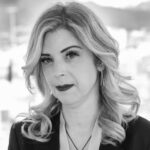 Cherie White is an award winning passionate visionary when it comes to social justice and business. She has been nominated for the social justice RBC women’s impact award 3 years in a row, and won REIN’s (Real Estate Investor Network) renovator of the year award for 2017. As a resident of Canada’s poorest postal code, Vancouver’s Downtown eastside, Steadfast Developments was created out of a dissatisfaction of accessibility of affordable housing for people in the recovery community. She chooses to live in a community home that reaches out to its neighbors and offers shelter, sharing of meals and mentorship programs for women entrepreneurs. Her unique business model comes from her background in social justice through the Salvation Army. She believes that in order to have success in our lives we need a family, a home and a job.
Cherie White is an award winning passionate visionary when it comes to social justice and business. She has been nominated for the social justice RBC women’s impact award 3 years in a row, and won REIN’s (Real Estate Investor Network) renovator of the year award for 2017. As a resident of Canada’s poorest postal code, Vancouver’s Downtown eastside, Steadfast Developments was created out of a dissatisfaction of accessibility of affordable housing for people in the recovery community. She chooses to live in a community home that reaches out to its neighbors and offers shelter, sharing of meals and mentorship programs for women entrepreneurs. Her unique business model comes from her background in social justice through the Salvation Army. She believes that in order to have success in our lives we need a family, a home and a job.
Cherie believes in a preventative approach when it comes to affordable housing and is focusing on housing for women and families before they fall into homelessness. She has large goals of completely revitalizing the DTES in the next 5-10 years with the help of
strategic partnerships in the neighborhood, experienced social justice developers and City Council. With a rent to own model, The Downtown Eastside will become a place families will want to raise their children for generations to come.
